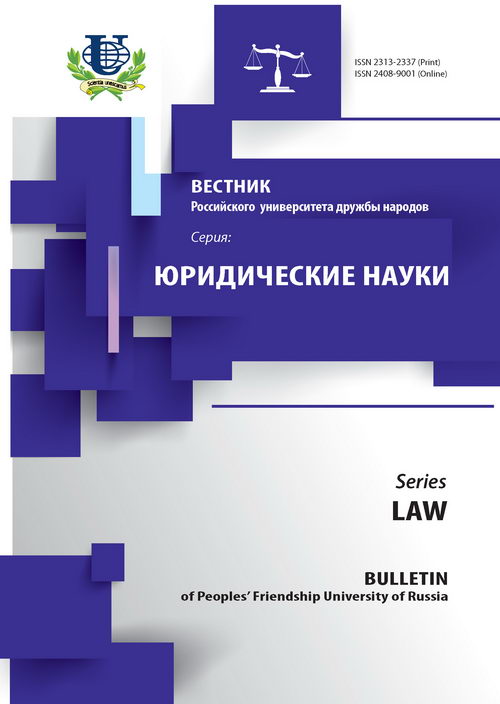Политико-правовой анализ ограничительных мер, введенных в отношении Российской Федерации, ее граждан и юридических лиц некоторыми интеграционными объединениями и зарубежными государствами
- Авторы: Клишас А.А.1
-
Учреждения:
- Российский университет дружбы народов
- Выпуск: № 1 (2016)
- Страницы: 41-64
- Раздел: Статьи
- URL: https://journals.rudn.ru/law/article/view/5321
- ID: 5321
Цитировать
Полный текст
Аннотация
В статье приведен политико-правовой анализ комплекса ограничительных мер (санкций), введенных в отношении Российской Федерации, ее граждан и юридических лиц некоторыми интеграционными объединениями и зарубежными государствами, такими как Европейский Союз, Соединенные Штаты Америки, Швейцарская Конфедерация, Австралийский союз в связи с принятием на основании результатов волеизъявления жителей полуострова Крым в состав России Республики Крым и города Севастополь на правах новых субъектов Российской Федерации - Республики Крым и города федерального значения Севастополь соответственно. В статье также рассмотрены ограничительные меры, введенные Россией в отношении ряда зарубежных государств и носящие «ответный», направленный на превенцию дальнейшего развития ухудшения межгосударственных отношений характер. Автор констатирует, что вводимые государствами ограничительные меры, как правило, являются оказывающими негативное влияние в первую очередь именно для государств, которые вводят такие санкционные меры, при этом ставя своей целью изменение политического вектора того или иного государства. В статье делается вывод, что несмотря на некоторые положительные тенденции развития российской политической, экономической и социальной сфер в рамках «санкционного режима», большинство политических деятелей Российской Федерации рассчитывают на разрешение сложившейся ситуации посредством дипломатического диалога исходя из позиций рациональности в подходе к выстраиванию межгосударственных отношений, а равно с этим, безусловно, исключительно в рамках уважения международно-правовых принципов и норм.
Ключевые слова
Об авторах
Андрей Александрович Клишас
Российский университет дружбы народов
Email: klishas.rudn@gmail.com
Кафедра конституционного права и конституционного судопроизводства Юридический институт
Список литературы
- Кошкин А.П., Атоян Т.Г. Взаимодействие российской власти и бизнеса в условиях санкций // Власть. - 2015. - № 1.
- Николаев В.П. Австралийский вариант: санкции против России // Юго-Восточная Азия: актуальные проблемы развития. - 2014. - № 25.
- Скрыль Т.В. Эффект потерь от введения санкций в глобальной экономике // Вестник Международного института экономики и права. - 2014. - № 2 (15).
Дополнительные файлы














